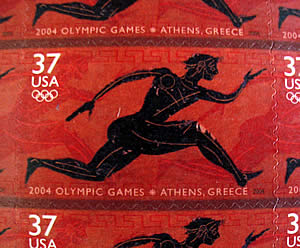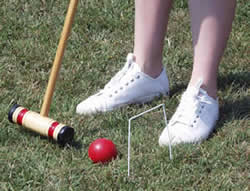Ancient Olympic Games
 The Olympics are here again, starting in just a couple of weeks in Brazil. Over 2700 years ago, athletes gathered to challenge each other and pay honor to Zeus, king of the Greek gods. The Summer Olympics of 2004 returned to their native land. The spirit of the games lived on in the skillful athletes that trained for months, even years, to represent their countries at this very honored event.
The Olympics are here again, starting in just a couple of weeks in Brazil. Over 2700 years ago, athletes gathered to challenge each other and pay honor to Zeus, king of the Greek gods. The Summer Olympics of 2004 returned to their native land. The spirit of the games lived on in the skillful athletes that trained for months, even years, to represent their countries at this very honored event.
The Ancient Games
Athletics were highly esteemed in ancient Greece and were an important part of education. Training the body was considered just as valuable as training the mind. This contributed to overall health and improved military skills, valued in a society with frequent wars. This emphasis on athletics encouraged competition, resulting in games every two years in Corinth, every four years at Delphi, and every four years at Olympia, which became the most famous location.
The Olympic games began around 700 BC. All competitors were male, spoke Greek, and were citizens of the city-states of the Greek world. Ancient artifacts indicate that athletes came from as far away as Spain and Turkey to participate in the games. Safe travel was ensured by a month-long truce among the Greeks leading up to the games. Violation of the truce involved a monetary fine and exclusion from the competition.
 The original competition of the Olympics was the stadion, a 200 yard foot race. The games at first were a one-day festival, focusing on this foot race. By 472 BC, the games had expanded to a five-day event. The first day involved sacrificial ceremonies. The remaining days included running, wrestling, boxing, and horse-racing. Athletes also trained to compete in the pentathalon, which consisted of sprinting, javelin, long-jump, discus, and wrestling. Many of these contests were depicted on red and black vases, as seen on the USPS commemorative stamp.
The original competition of the Olympics was the stadion, a 200 yard foot race. The games at first were a one-day festival, focusing on this foot race. By 472 BC, the games had expanded to a five-day event. The first day involved sacrificial ceremonies. The remaining days included running, wrestling, boxing, and horse-racing. Athletes also trained to compete in the pentathalon, which consisted of sprinting, javelin, long-jump, discus, and wrestling. Many of these contests were depicted on red and black vases, as seen on the USPS commemorative stamp.
The ancient athletes didn’t receive gold medals or commercial endorsements for winning a competition. An Olympic winner was given a laurel crown, symbol of victory, and a statue in his likeness to be set up at Olympia. While these were the formal honors, athletes were treated to other benefits by their towns for bringing home such positive recognition.
Women weren’t allowed to compete in the ancient Olympics, but unmarried women could attend. Unmarried women could also compete in games held in honor of Hera, queen of the gods. These games mainly consisted of foot races. While they were not as well known, the Hera games were well respected.
Our Games Today
The ancient Olympics ended around 400 AD. When the site of Olympia was excavated in the late 1800’s, the Olympics were revived. The first modern Olympics was held in April 1896 in Greece. Track events were held in a rennovated stadium in Athens while swimming events roughed it out in the chilly Aegean Sea.
In 2004 the Olympics returned to Greece. Athletes once again competed in a land that has publicly honored athletes for thousands of years. For more information regarding current and future Olympic games, visit www.olympic.org.




